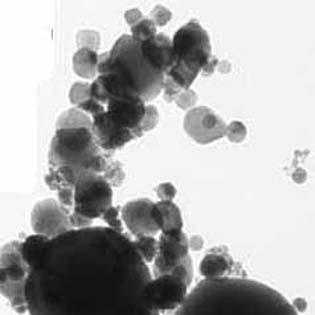Apotogenic and immunologic potential of titanium particles
In vitro study on the apoptogenic and immunologic potential of titanium nanoparticles released from dental implants and orthopedic prostheses
Hovedinnhold
The extensive use of metal implants in orthopedic surgery as well as in dentistry calls for a general attention to their biological safety. Titanium (Ti) is used for many types of implants and is generally considered a safe metal to use in implantation. However, it has been shown that particulate debris, also in the nanoscale range, are released from Ti medical prostheses after frictional wear. These particulate debris may cause health problems either at the implant site or in distant organs (Frisken et al. 2002).
The overall aim of this study is to investigate whether Ti nanoparticles released from dental implants and orthopaedic devices may trigger death signalling pathways (i.e. apoptosis and/or necrosis). The connection between allergic reactions to titanium and apoptosis will also be assessed. Apoptotic cell death is a highly regulated physiological process resulting in vivo in the rapid removal of apoptotic cells by phagocytes without an inflammatory reaction. Necrosis occurs as a result of exposure to gross injury and triggers an inflammatory reaction in the tissue.
The following aspects will be addressed:
- Effects of titanium nanoparticles on:
- DNA content
- cell cycle
- cell size and granularity
- cell adhesion
- correlation between the effect of titanium nanoparticles on LTT (lymphocyte transformation test) and their apoptogenic potential.
The usefulness of the consideration of the mode of cell death in the assessment of biocompatibility in general and of the allergenic potential in particular is twofold: a better understanding of pathomechanisms and the development of strategies for targeted intervention.
PhD student: Carmen Irina Vamanu
Supervisors: Nils R. Gjerdet; Paul J Høl; Mihaela Roxana Cimpan; Said ElSayed
